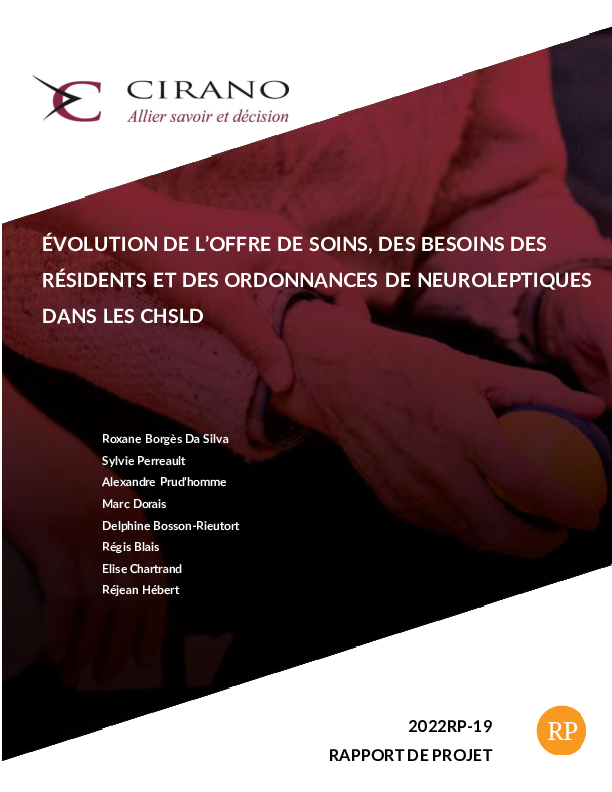Évolution de l’offre de soins des besoins des résidents et des ordonnances de neuroleptiques dans les CHSLD
Long-term care centers (CHSLDs) account for a significant portion of the budget allocated to the care of seniors in Quebec. The majority of the people who are housed there have significant disabilities. As a result, they have high needs for nursing care and support services.
In this study, the research team uses administrative data to analyze the needs of residents according to their autonomy profile and the human resources available to meet them. The data are from ten CHSLDs of a CIUSSS in Montreal between 2016 and 2019.
Year after year, the data shows that there is a deficit between the supply of care, on the one hand, and the needs of the residents, on the other hand. Although this deficit decreased over the period, the offer of services did not meet all of the residents' needs, both for nursing care and for assistance services. For assistance and nursing care combined, the proportion of needs met increased from 88.9% in 2016-2017 to 95.5% in 2018-2019. For nursing care only, the proportion of needs met increased from 86.8% in 2016-2017 to 90.1% in 2018-2019. The authors also examined whether this deficit in service provision would have been offset by increased use of neuroleptics. This hypothesis does not seem to be confirmed, which is reassuring.
While this topic is regularly in the news, this study fills a gap in our understanding of the evolution of health care services in long-term care facilities in Quebec in relation to the needs of residents. From a methodological point of view, this pilot project also shows that it is feasible but complex to use administrative data to analyze clinical phenomena.




